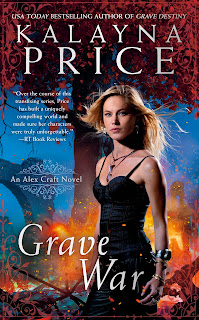Video Author Chat with Misty Massey at StellarCon
Today I'm very pleased to share with you an quick video chat with Misty Massey from StellarCon last weekend. Misty is the author of Mad Kestrel and a regular poster at Magical Words, an amazing craft website for writers. This video was also filmed in the dealer's room, so the background noise is a little distracting. Sorry about that. I really need to look into getting a mic for my camcorder. Anyway, without further ado, the the video:
Now, when you were watching that interview, did you hear how Misty described her book, Mad Kestrel? She didn't give us a big break down of the plot or give us a long explanation about who her main character is. She gave us just two short sentences: "A rollicking adventure of magic on the high seas. If Jack Sparrow had a little sister, it would be Kestrel."
From those two little sentences, you get an idea of what the story is about (Pirates, magic, adventure) that a longer, rambling explanation likely wouldn't have captured and certainly not it quite so intriguing a way. It gives you just enough to make you curious--which is exactly what it's supposed to do.
They style pitch has many names, depending on who you are speaking to. I'm a bit fuzzy on the exact breakdown of what qualifies as which kind of pitch, so for this blog, I'm going to call that an elevator pitch--which is a short pitch that you could tell someone in the span of an elevator ride. Meaning they ask you what your book is about and you can rattle off "My book is . . ." and be done and have their interest before the doors open again.
To get a pitch like this, you have to boil down your book to it's essence. What is most unique about it? What makes it interesting. At the same time, what evocative words will make the listener immediately form ideas?
At RoundCon a few weeks back one of the other guests was talking about her books and gave a pitch that stopped me and made me think, "wow, I want to read that." Elysabeth Williams described one of her books as "A Steampunk Charlie's Angels" which sounds fascinating. (That is actually probably a 'high concept pitch' which is even shorter than the elevator pitch.)
Happy hump day everyone!
Now, when you were watching that interview, did you hear how Misty described her book, Mad Kestrel? She didn't give us a big break down of the plot or give us a long explanation about who her main character is. She gave us just two short sentences: "A rollicking adventure of magic on the high seas. If Jack Sparrow had a little sister, it would be Kestrel."
From those two little sentences, you get an idea of what the story is about (Pirates, magic, adventure) that a longer, rambling explanation likely wouldn't have captured and certainly not it quite so intriguing a way. It gives you just enough to make you curious--which is exactly what it's supposed to do.
They style pitch has many names, depending on who you are speaking to. I'm a bit fuzzy on the exact breakdown of what qualifies as which kind of pitch, so for this blog, I'm going to call that an elevator pitch--which is a short pitch that you could tell someone in the span of an elevator ride. Meaning they ask you what your book is about and you can rattle off "My book is . . ." and be done and have their interest before the doors open again.
To get a pitch like this, you have to boil down your book to it's essence. What is most unique about it? What makes it interesting. At the same time, what evocative words will make the listener immediately form ideas?
At RoundCon a few weeks back one of the other guests was talking about her books and gave a pitch that stopped me and made me think, "wow, I want to read that." Elysabeth Williams described one of her books as "A Steampunk Charlie's Angels" which sounds fascinating. (That is actually probably a 'high concept pitch' which is even shorter than the elevator pitch.)
Boiling a 100k word story down to a single sentence is hard work. It is also a skill I'm personally still working on and am far from mastering. But for all of you aspiring writers out there, I highly recommend practicing. Before you are published you will use these short pitches as part of your query letter to grab an agent or editor's attention and get them to read on, or in person if you get a chance to go to conventions and conferences. If you hit on a good high concept pitch or short elevator pitch, your agent will use it when approaching editors, and your editor will use it to sell the manuscript to the publisher's marketing team. Then you will use the pitch again once the book is out when potential readers stop by your table and ask about your book or when you're on a panel and the moderator asks you to introduce yourself and tell everyone a bit about your book(s). A well polished and practiced pitch will certainly save you from stumbling over your words going "I, uh, write about shapeshifters and uh, vampires . . . " ^_^
Happy hump day everyone!


Comments